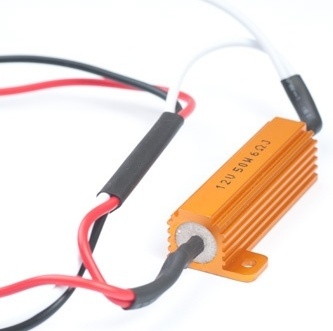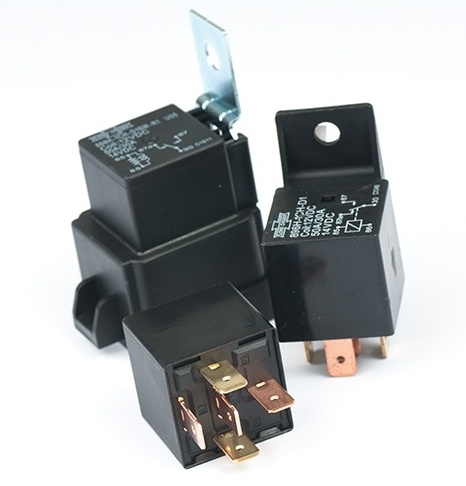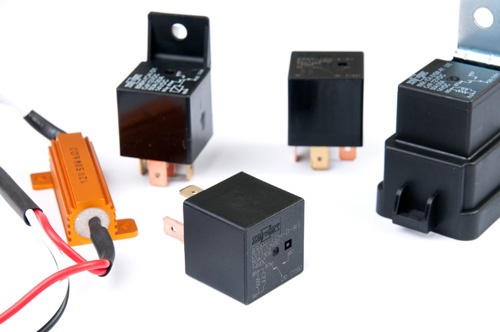Whether you are fixing your air conditioning, connecting new LED lights, or wiring a relay, you are probably working with a resistor. Resistors can be found in almost every electrical circuit, but they are often built-in to other components. So what do these hidden resistors really do? And why are they so important to the electrical circuits you use every day?
What does a resistor do?
A resistor regulates the flow of electrical current within a circuit. By introducing resistance, it controls the movement of electrical charges, ensuring proper functionality of the circuit and its components. Resistors are typically made from materials like copper or carbon, which impede the flow of electricity.
Types of Resistors
- Carbon Resistors: Commonly used in lower-powered circuits.
- Film Resistors: Offer better precision and stability.
- Wire-Wound Resistors: Handle high power and are often used in industrial applications.
Resistors are versatile and play a critical role in countless electrical setups, from simple household electronics to complex industrial systems.
Why Are Resistors Important?
Protecting Against Voltage Spikes
Protect against voltage spikes. Sensitive components, such as LED lights, can be damaged by sudden voltage spikes. Resistors act as a safeguard, controlling the electrical current to protect these components. Additional devices like fuses and circuit breakers often complement resistors for extra protection. Check out the fuses and circuit breakers we offer at Del City.
Ensuring Proper Voltage
Resistors help components receive the correct voltage by creating a “voltage drop.” Each part of a circuit—whether it’s a light, switch, or relay—requires a specific voltage to function properly. Resistors adjust the voltage to match the component’s needs.
For example, when upgrading incandescent turn signals to LEDs, an LED load resistor is necessary. Without it, the turn signals would blink too rapidly or fail due to excessive voltage. The LED load resistor creates the required voltage drop, ensuring proper function and longevity.
When upgrading incandescent turn signals to LED, an LED load resistor is required for each light in order to ensure the turn signals work properly. The LED load resistor creates a voltage drop so the LED turn signals blink at a proper speed. If the LED load resistor was not installed, the LED turn signal would blink too rapidly, and would eventually be destroyed by the high voltage. Need to upgrade? Learn how to upgrade your turn signals to LEDs.

Common Applications of Resistors
Resistors can be purchased individually but are often integrated into other electrical components, such as relays, LED load resistors, and other 12V products. Below are a few examples of resistor applications in relays:
Relays with Built-in Resistors
- Standard Relay with Resistor: Protects sensitive equipment from voltage spikes in full-voltage applications, including fog horns, air conditioners, and window lifters. Explore our Standard Relays with Resistors.
- Potted Relay: Designed for marine applications or harsh environments, the potted relay is sealed against dust and moisture, while its internal resistor safeguards against voltage spikes. Learn more about Potted Relays here.
- Mini 280 Skirted Relay with Resistor: Features Mini 280-style pins and connects with sealed OEM connectors in vehicles. Ideal for full-voltage circuits. Shop Mini 280 Skirted Relays.
- ISO 280 Micro Relay with Resistor: A compact version of the standard relay, compatible with Mini (ATM) fuse boxes. Check out ISO 280 Micro Relays.
Why Resistors Are Essential
Though small and often hidden, resistors are indispensable to the proper functioning of electrical circuits. They regulate electrical current, protect sensitive components from voltage spikes, and ensure your devices work as intended.
So, the next time you switch on your air conditioning or new LED lights, remember that a resistor is quietly working behind the scenes to keep everything running smoothly.

If you would like learn more or have if you have questions about Del City’s products with built-in resistors, visit www.delcity.net or call 1.800.654.4757.
Sources
http://www.explainthatstuff.com/resistors.html
http://www.electronics-tutorials.ws/resistor/res_1.html
